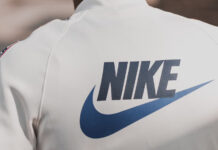Leading US fashion stores Foot Locker, Kohl’s, Ross Stores, American Eagle Outfitters, and Burlington present divided but wary predictions for 2025. Although some businesses hope for modest expansion, others see decreases brought on by consumer spending patterns, economic challenges, and outside market unpredictability.
With like sales likely to rise between 1.0 and 2.5 percent, New York based retailer Foot Locker is predicting flat to somewhat positive sales growth. Store count and square footage are going to drop, though. To negotiate the changing retail environment, CEO Mary Dillon underlined a focus on customer-facing investments and regulated inventory.
On net sales, Wisconsin-based omnichannel retailer Kohl’s forecasts a large reduction—between 5 and 7 percent—while comparable sales are expected to drop between 4 and 6 percent. The company wants to reinterpret itself by concentrating on important areas of development to improve value and customer experience.
Likewise, American Eagle Outfitters, a Pennsylvania-based clothes shop, is also having challenges; income is expected to drop in the low single digits. Although reduced demand and weather-related effects cause a delayed start to the year, CEO Jay Schottenstein is nonetheless dedicated to controlling inventories and expenses if long-term development is to be sustained.
Ross Stores based in California is acting cautiously however, citing macroeconomic issues and external unpredictability. Although sales can vary from a 1% drop to a 2% rise, CEO Michael Conroy underlined doubts in consumer demand, especially in early 2025.
Burlington, among the five stores, is the most hopeful, predicting total sales increase of 6 to 8 percent and intends to open about 100 additional locations. CEO Michael O’Sullivan thinks the off-price strategy is positioned to flourish among uncertainty, even if he admits the erratic retail environment.
With most stores getting ready for possible economic challenges and changing customer expenditure, the general view for 2025 shows a cautious industry posture. Burlington is still positive, while others are giving cost control, inventory control, and strategic investments a priority in order to negotiate the uncertain retail environment.






























